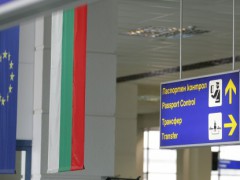Immigration and remittances in Europe

The issue of remittances within Europe is very differently perceived whether one is the “exporter” or recipient of people. For Western Europeans, the specter of the specter criminality-prone foreigners and the “Polish plumber’s” threat to working people’s wages looms large. For Central and Eastern Europeans, the remittances of their expatriates represent on the great prizes of European Union membership and of access to the EU labor market.
Overall however it seems the benefits largely outweigh the costs. People working in the West, especially coming from authoritarian regimes and poor countries, discover not a perfect el Dorado but an example of how a country may be run, more decently and competently than in most. Their remittances provide welcome relief back home. It also can lead to valuable network-building in the West, allowing friends and family to study, provide entrepreneurial opportunities, and bring valuable skills and contacts to bear back home.
The host country is also likely to benefit as well on the whole. In addition to representing a boost to the local labor force, the remittances sent back will often benefit the country indirectly: while it “imports” people from poor countries, the remittances may well be used to buy products from Western Europe.
However, there is no doubt that it is a bittersweet thing. In some Central and Eastern European countries, many people are alarmed by the “flight” of young people to the West. Many of them, notably Hungary and Bulgaria, are rapidly shrinking in terms of population due to low birth-rates and massive emigration. In the case of Hungary, this demographic crisis has fed into the authoritarian declinist ideology of the ruling Fidesz party, drafting a constitution that, among other things, bans abortion and gay marriage, claims responsibility for ethnic Hungarians in other countries, and allows the possibility of extra votes to people with children (see also its amazing preamble).
Similarly in the Western countries the benefits of migrant work is counter-balanced by traditional fears of foreigners and recent populist reflexes in the context of the economic crisis. We see this, for example, in plans by the Dutch government to expel Eastern Europeans from its territory, Germany and Austria waiting to the final possible date to open their borders despite close ties to Eastern Europe, Danish opposition to Schengen enlargement, and French ill-treatment of Roma. The overall effect is to undermine the completion of Europe’s territorial integration, limitations on freedom of movement (the European citizen’s most concrete right), and in effect the existence of second class (Eastern) European citizens.
There is a harsh opposition between more sentimental impulses – fear of national decline and loss of youth in the East, and usually overblown fears of criminality and depressed wages in the West – as against the economic logic of Western businesses’ hunger for cheap labor and the simple need of Central and Eastern Europeans to have money for themselves and their family.

These problems are even more pronounced with the work and remittances of non-European migrants and in particular Muslim and/or black Africans. The Westerners frets about Islam, “integration” and national purity. The Southerners, dictated by the direness of their condition and of their families back home, have no choice but do their best to break into “fortress Europe”.
In recent weeks, 25,000 Tunisians have entered Europe and hundreds of people have died in boating accidents while attempting to cross the Mediterranean. One has to imagine the desperate political or economic circumstances that would lead to do this.
The reaction of the Europeans, despite all the professions of solidarity with the developments in North Africa, has been to largely cave in to xenophobic tendencies. Opposition to immigration even undermines Europe’s integration and cohesion itself; the recent limitations on Schengen in “exceptional circumstances” due to the wave of migrants from North Africa are only the most recent sign of this pattern.
And yet, existing trends suggest we will have more immigrants despite the best efforts of European politicians. Most of the developing countries are experiencing collapsing birth rates and some economic growth but it will be many years before the push and pull pressures for migration will cease.
In terms of the recipient countries, the arrival of foreign labor represents a valuable contribution to the European labor force, which for demographic reasons will begin shrinking within a few years according to the EU’s projections. The new arrivals can also represent competition for employment with the lower rungs of society and lead to tense race relations.
Much depends on the extent demagogic politicians are able to ride the wave of xenophobia. The most immediate threat would be to the European project. If groups like Geert Wilders’s Party of Freedom in the Netherlands, the Danish People’s Party or the more demagogic elements of France’s UMP have their way, then permanent damage will be done to Schengen and a process of a “European dis-integration” may be underway. They may also succeed in reducing temporary and permanent migrant labor. In that case they will not succeed in returning Europe to its previous homogeneity but they will have reduced both Europe’s labor force and the prospects of would-be migrants for enriching and bettering themselves and their home countries.
Tags: migration, Roma, xenophobia

